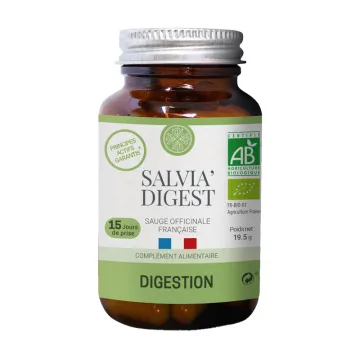What are abdominal cramps and what are their main causes?
Abdominal cramps refer to a sensation of pain or tension in the abdomen, which can vary from mild to severe. These cramps can be caused by a variety of factors, including:
- Indigestion: often the result of eating too quickly or consuming foods that are difficult to digest.
- Gas and bloating: Accumulation of gas in the intestine, often due to fermentable foods.
- Constipation: Decreased frequency of bowel movements can cause abdominal tension and pain.
- Food intolerances: Reactions to certain foods such as lactose or gluten can cause cramps.
- Infections: Gastrointestinal infections, such as gastroenteritis, can lead to severe cramping.
How can I relieve abdominal cramps at home?
To relieve abdominal cramps, several methods can be applied at home:
- Applying heat: A heating pad or hot water bottle applied to the abdomen can relax muscles and reduce pain.
- Hydration: Drinking enough water helps aid digestion and can alleviate cramping due to constipation.
- Herbal tea: Teas such as ginger or chamomile can soothe the stomach and reduce pain sensations.
- Light exercise: Walking or other forms of light physical activity can stimulate intestinal transit and relieve bloating.
When should you consult a doctor about abdominal cramps?
It's advisable to consult a healthcare professional if abdominal cramps are severe, persist or are accompanied by alarming symptoms such as:
- Bleeding: Presence of blood in vomit or stool.
- Fever: A sign of possible infection or inflammation.
- Persistent nausea and vomiting: May indicate an obstruction or other serious complication.
- Unexplained weight loss: May indicate a serious underlying medical condition.
How can abdominal cramps be prevented?
Abdominal cramps can often be prevented by adopting healthy eating habits and lifestyle:
- Balanced diet: Eat balanced meals and avoid foods that trigger symptoms.
- Avoid large meals: Eating small portions can help prevent indigestion and cramps.
- Regular exercise: Maintain a regular exercise routine to improve digestion.
- Stress management: Stress can affect digestion and cause abdominal cramps.
Are there any medical treatments for abdominal cramps?
Treatments for abdominal cramps vary depending on the underlying cause. Here are some common options:
- Antacids: To relieve indigestion and excess stomach acid.
- Antispasmodics: Used to reduce muscular contractions in the intestine and relieve pain.
- Probiotics: Can help restore normal intestinal flora, particularly useful after antibiotic treatment or infection.
- Surgical intervention: In extreme cases, such as obstructions or certain inflammatory diseases, surgery may be required.
What diseases are associated with chronic abdominal cramps?
Chronic abdominal cramps may be symptomatic of several underlying medical conditions:
- Irritable bowel syndrome (IBS): Characterized by recurrent abdominal pain, bloating, and altered bowel habits.
- Inflammatory bowel disease: Includes Crohn's disease and ulcerative colitis, which cause chronic inflammation of the gastrointestinal tract.
- Gastric or duodenal ulcers: Erosions of the lining of the stomach or early intestine that cause pain and discomfort.
- Diverticulitis: Inflammation of diverticula in the colon, which can cause severe pain and infection-like symptoms.
- Gastritis: Inflammation of the stomach lining, often due to H. pylori infection or prolonged use of non-steroidal anti-inflammatory drugs (NSAIDs).
How can dietary changes affect abdominal cramps?
Dietary changes can have a significant impact on abdominal cramps, including:
- Reducing irritating foods: Avoid spicy, acidic or very fatty foods that can irritate the stomach and cause cramps.
- Reducing insoluble fibre: In some cases, reducing consumption of insoluble fibres such as fruit peels and certain vegetables can reduce intestinal irritation.
- Increase soluble fiber: Soluble fiber, found in oats, bananas and apples, can help regulate digestion and reduce IBS symptoms.
- Eliminating allergens: Identifying and eliminating foods to which you are allergic or intolerant, such as lactose or gluten, can ease cramps.
What role does hydration play in managing abdominal cramps?
Good hydration is crucial to maintaining digestive health and can help prevent or alleviate abdominal cramps by:
- Facilitating digestion: Water helps dissolve nutrients and minerals for better absorption and helps break down food in the stomach.
- Preventing constipation: Water helps soften stools and promotes regular intestinal transit, reducing cramping caused by constipation.
- Reducing gastric acidity: Water can dilute excess acid in the stomach, preventing ulcers and cramps associated with high acidity.
How does stress affect abdominal cramps?
Stress can exacerbate abdominal cramps in several ways:
- Stimulation of gastric acidity: Stress can increase acid production in the stomach, aggravating cramps and the risk of ulcers.
- Impact on intestinal motility: Stress can alter the contraction of intestinal muscles, either slowing them down (contributing to constipation) or speeding them up (contributing to diarrhea).
- Effects on intestinal flora: High levels of stress can upset the balance of bacteria in the gut, leading to digestive disorders and cramps.
What are the warning symptoms associated with abdominal cramps that require immediate medical attention?
Certain characteristics of abdominal cramps require urgent medical attention, including:
- Sudden, intense pain: Sharp pain can be a sign of serious conditions such as appendicitis or organ rupture.
- Jaundice: Yellow discoloration of the skin or eyes, which may indicate a liver problem.
- Severe abdominal distension: Significant swelling of the abdomen, which may indicate an obstruction or other emergency.
- Neurological symptoms: Confusion, dizziness or fainting associated with abdominal cramps may indicate shock or sepsis.


